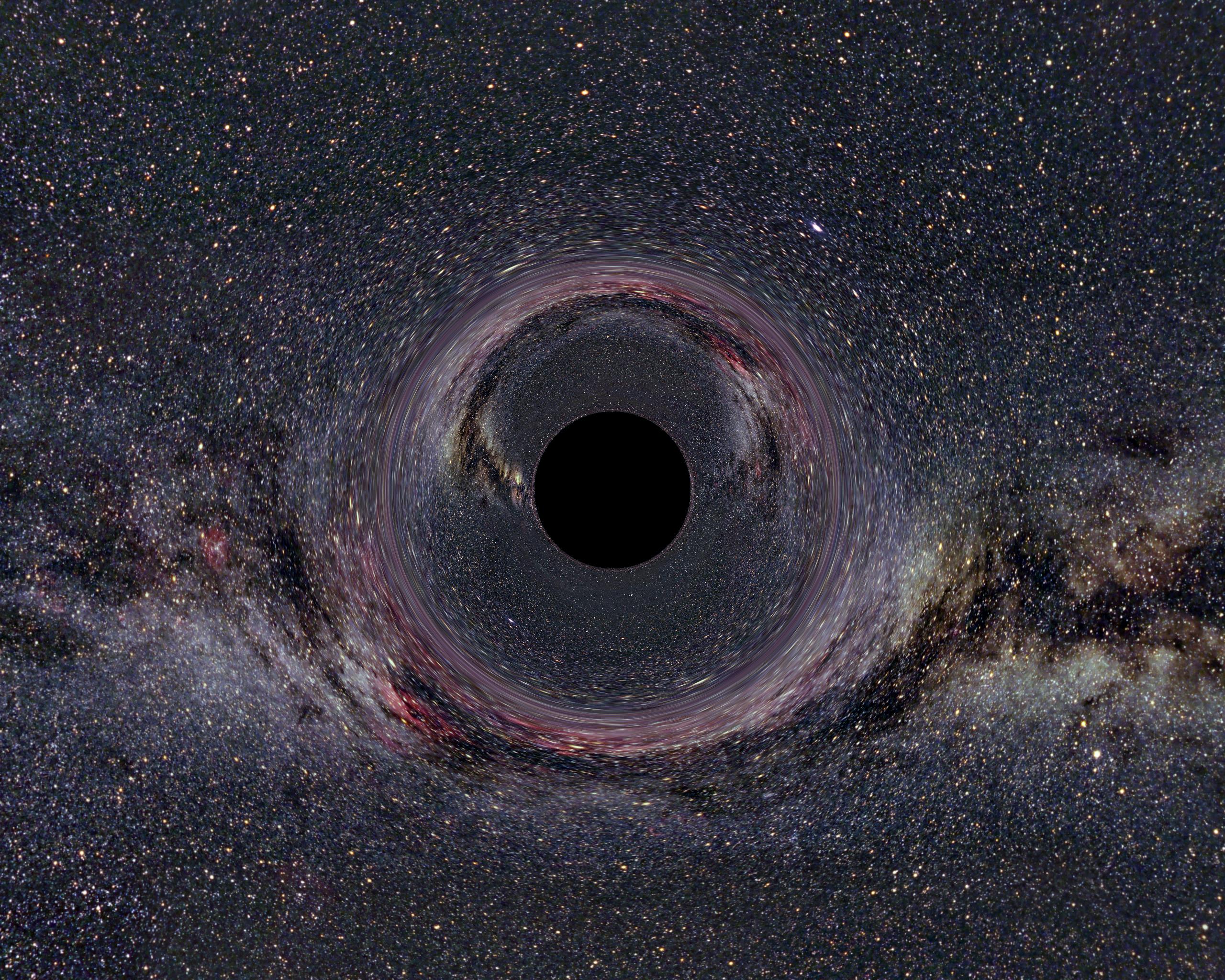These are probably some of the most fascinating phenomena in space despite the fact that most of what is known about them is based on speculation backed by a small amount of evidence. A black hole basically pertains to a region of space from which nothing can escape, including light. There is a precisely defined surface that surrounds this space, known as the "event horizon," which as scientists say, "marks the point of no return."
Black holes been named as such due to their property of absorbing light without reflecting any of it, thus behaving like perfect thermodynamic "black bodies". Quantum mechanics predicts that these holes emit radiation in order to maintain a stable temperature. Interestingly, the larger the mass of a black hole, the lower its temperature, making it more difficult to observe.
Black holes are thought to be caused by the collapse of supernova stars at the end of their life cycles and physicists posit that they maintain their growth by absorbing mass from their surroundings. The most recent scientific consensus predicts that black holes exist at the centre of most galaxies and there is thought to be one 4 million times the mass of the sun at the centre of our Milky Way galaxy.
Black holes been named as such due to their property of absorbing light without reflecting any of it, thus behaving like perfect thermodynamic "black bodies". Quantum mechanics predicts that these holes emit radiation in order to maintain a stable temperature. Interestingly, the larger the mass of a black hole, the lower its temperature, making it more difficult to observe.
Black holes are thought to be caused by the collapse of supernova stars at the end of their life cycles and physicists posit that they maintain their growth by absorbing mass from their surroundings. The most recent scientific consensus predicts that black holes exist at the centre of most galaxies and there is thought to be one 4 million times the mass of the sun at the centre of our Milky Way galaxy.


0 Comments